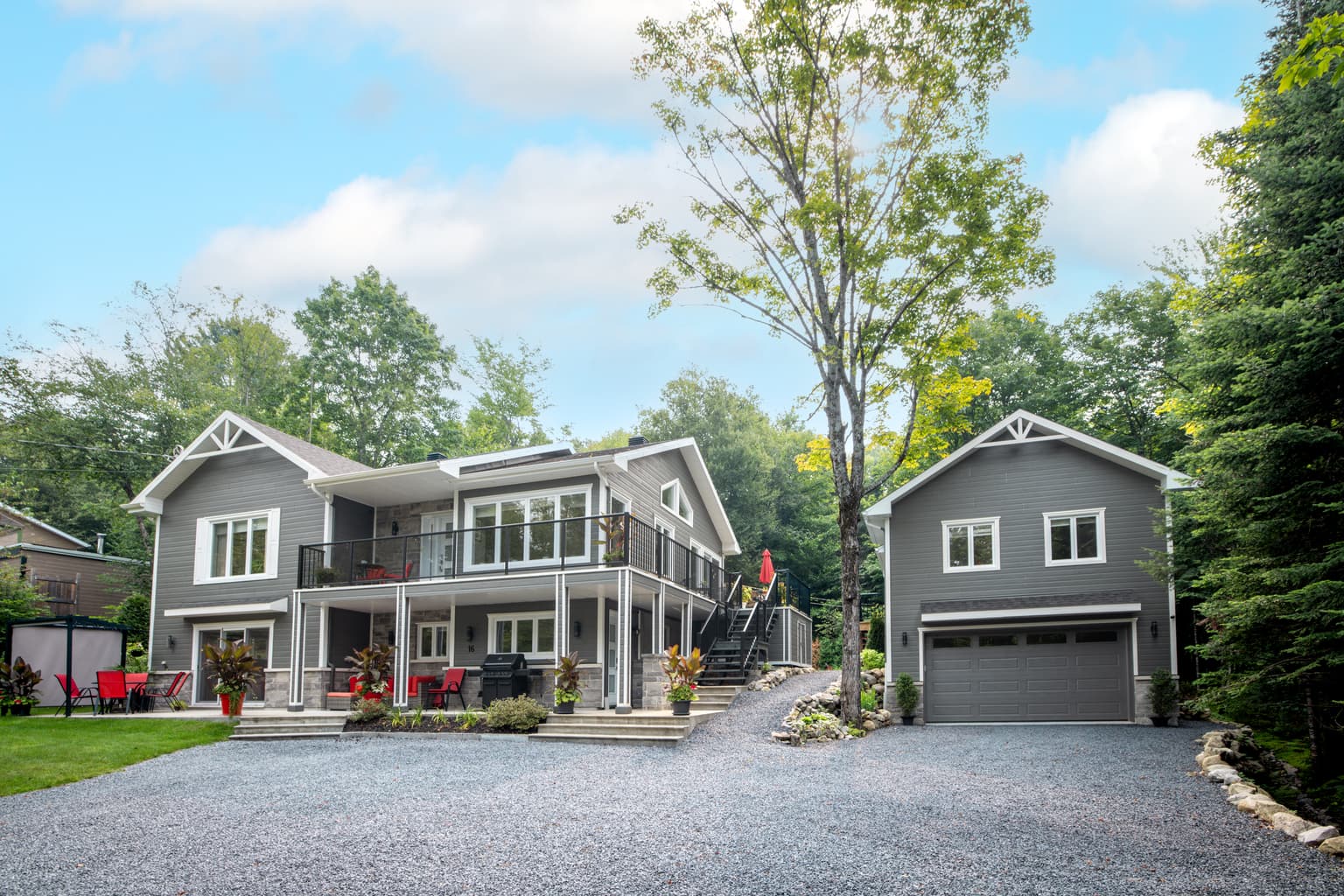Investing in real estate requires strategy in addition to purchasing real estate. The majority of residential properties in North America are single-family homes, but multi-family investments are rapidly gaining traction with serious investors. This is a fact that may surprise you. Why? Cash flow. Scalability. Effectiveness.
If you’re based in Mississauga or anywhere in the GTA and wondering whether to go solo with a single unit or stack your earnings with multiple doors, this breakdown is for you. Let’s unpack what really separates these two investment models, and which one might suit your goals best.
What’s the Real Difference?
The difference between single-family and multi-family properties may appear simple at first, but it involves more than just the quantity of doors.
A detached residential building intended for a single household is called a single-family home. Usually, it is rented under a single lease and has a single kitchen and set of utilities. This covers detached homes, townhouses, and bungalows. Families and other long-term tenants who value stability and seclusion frequently choose these properties because they are simpler to maintain and finance.
Contrarily, multi-family properties, think duplexes, triplexes, or small apartment complexes, contain two or more independent units in a single building or lot. Every apartment has a separate kitchen, living area, and lease. A building is classified as residential if it has four units or fewer, and as commercial if it has five or more.
Although rental income can be generated by either type of property, the true distinction is in how each scales, performs during vacancy, and yields long-term returns. This is where strategy is useful.
The Case for Single-Family Investing
Single-family properties are often the first stop for new investors, and for good reason.
- Lower purchase price: Entry costs tend to be more manageable.
- Simpler financing: Easier approval with traditional mortgage lenders.
- Easier resale: The buyer pool includes families, investors, and downsizers alike.
- Lower management load: One roof, one tenant, one set of issues to resolve.
And in Mississauga’s hot housing market, single-family homes continue to attract long-term renters who value privacy, schools, and stable neighbourhoods.
But there’s a catch, actually, a few.
- Cash flow is limited to just one rental income stream.
- Vacancies hurt more, when it’s empty, income drops to zero.
- Scaling is slower, you’re acquiring one door at a time.
In short: single-family investing is accessible and flexible, but not always the fastest path to portfolio growth.

The Multi-Family Advantage
Multi-family investments bring a different kind of power play.
- More rental income per property: Even if one unit is vacant, others continue generating cash flow.
- Lower cost per unit: Buying four units under one roof is often cheaper than buying four individual houses.
- Easier to scale: Grow your portfolio faster without buying multiple separate properties.
- Control over value: Multi-family properties are often valued based on income, not comparable sales, giving you more room to force appreciation.
These factors make multi-family investing a favourite among seasoned investors looking for long-term cash flow and operational efficiency.
However, it’s not for everyone.
- Higher upfront costs: You’re buying multiple units, and that means a bigger mortgage.
- Stricter financing: Lenders assess income potential, not just your credit score.
- More complex management: More tenants = more maintenance, more communication, more admin.
If you’re not ready to either self-manage or hire a professional property manager, multi-family investing can feel overwhelming fast.
Which Strategy Works Best in Mississauga?
Here’s where local market knowledge matters.
Mississauga’s neighbourhoods, like Cooksville, Port Credit, and Meadowvale, are full of investment potential. Single-family homes in stable, family-oriented areas tend to stay occupied longer. Multi-family opportunities, especially legal duplexes and triplexes, offer higher rental yields and better vacancy protection, particularly near transit corridors and post-secondary institutions.
If your priority is long-term stability with manageable effort, a single-family home might be your best bet. But if you’re aiming for faster portfolio growth and better cash flow, multi-family might deliver stronger returns, especially when market conditions shift.
Tips Before You Buy
Whether you’re leaning toward single-family or multi-family, do your homework first. Here’s where to focus:
- Run the numbers – Use cash flow calculators. Include taxes, insurance, maintenance, and vacancy assumptions.
- Consider location – Near transit? Schools? High-demand rental zones? These matter more than cosmetic upgrades.
- Think exit strategy – Do you plan to refinance, sell, or hold long-term? Your strategy should shape your buy.
- Get pre-approved – Financing terms vary depending on the property type and size. Know your limits.
- Protect your investment – It’s easy to overlook risk, but unexpected property damage or insurance disputes can derail your returns. That’s why seasoned investors in high-risk regions often work with public insurance adjusters to make sure claims are handled fairly and fast.
- Consult a local pro – A Mississauga-based real estate expert (like us!) can help you navigate zoning, tenant laws, and rental market trends.
FAQs: Single-Family vs Multi-Family Investing
1. What’s the biggest difference between single-family and multi-family properties?
The primary difference lies in the number of rental units. Single-family homes are standalone properties designed for one household, with one lease and one set of utilities. Multi-family properties contain multiple separate rental units within one building or lot, such as duplexes, triplexes, or apartment complexes, and generate income from multiple tenants simultaneously.
2. Which is better for cash flow: single-family or multi-family investing?
Multi-family properties generally offer better cash flow potential because they provide multiple streams of rental income. Even if one unit becomes vacant, others can continue to generate revenue. In contrast, single-family homes rely on one tenant, so if that unit goes vacant, all income from that property stops.
3. Is it easier to get financing for a single-family or multi-family investment?
Financing is typically easier for single-family homes. They often qualify for traditional residential loans with lower down payments and more favorable interest rates. Multi-family properties, especially those with five or more units, may require commercial loans, which have stricter underwriting criteria and higher down payment requirements.
4. Which type of property scales better for investors?
Multi-family properties scale faster. Buying one building with multiple units allows investors to grow their portfolio with a single transaction. Single-family properties, while simpler to manage individually, require purchasing one home at a time, making scaling slower and more costly per unit.
5. Are multi-family investments riskier than single-family homes?
Multi-family properties can carry higher upfront costs and require more active management, which adds complexity and potential risk, especially for new investors. However, they also offer greater stability in cash flow and diversification of income. Single-family homes are easier to manage and sell but are more vulnerable to income loss during vacancies.
Conclusion
There’s no one-size-fits-all in real estate. Single-family homes are simple, reliable, and easy to sell. Multi-family units, while more complex, can generate significantly more income and wealth over time.
The right investment? It’s the one that fits your budget, your lifestyle, and your long-term goals. Whether you’re just getting started or looking to scale, Mississauga offers opportunities on both ends of the spectrum.
Need help evaluating a property or deciding which path is right for you? Let’s talk. Mississauga Home is here to guide smart investors like you, one door (or four) at a time.

